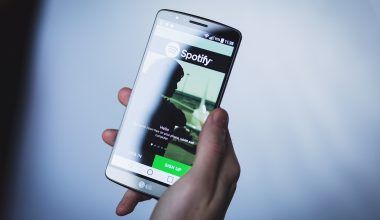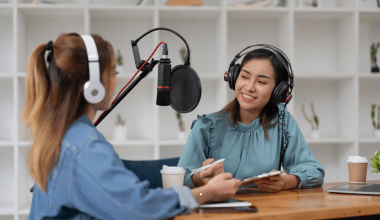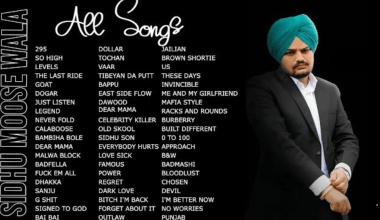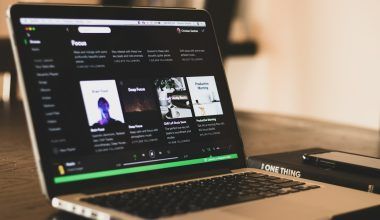YouTube Content ID is a vital tool for creators to protect and monetize their original works, ensuring that they are properly compensated when their content is used across the platform. Deliver My Tune, a popular music distribution service, offers a streamlined way for artists to leverage YouTube Content ID. But before you can access this powerful system, it’s essential to understand the eligibility criteria for registering your songs. In this article, we’ll break down the requirements you must meet to register your music with Deliver My Tune’s YouTube Content ID system.
1. Ownership of Exclusive Rights
One of the most critical eligibility factors for registering songs with Deliver My Tune’s YouTube Content ID system is owning the exclusive rights to the audio content. This means that the song must be wholly owned by you, either as the composer, producer, or through legally obtained licenses. If the song contains samples, cover versions, or collaborations, it is necessary to ensure that the proper permissions and licenses are in place. Deliver My Tune requires you to confirm that the music is original and that you have the exclusive rights to manage its distribution and monetization.
Why is this important?
YouTube’s Content ID system is designed to prevent copyright infringement, so ensuring that your song is original and that you have the proper rights helps avoid disputes and legal issues. Without exclusive rights, your content could face disputes, demonetization, or even removal from the platform.
2. No Public Domain or Copyright-Free Content
Songs containing public domain content or copyright-free music cannot be registered with Deliver My Tune’s YouTube Content ID system. This restriction exists because public domain material is not eligible for Content ID claims. The platform is designed to help artists protect their copyrighted work, and public domain material falls outside these protection boundaries.
What constitutes public domain content?
Public domain content typically includes classical music, folk tunes, or works whose copyrights have expired. If you’re unsure whether a song or piece of music falls into the public domain, it’s advisable to research thoroughly before attempting to register it with Deliver My Tune.
3. No Third-Party Samples Without Proper Licensing
If your song includes samples or elements from other works, you must have proper licensing agreements in place before registering it with YouTube Content ID through Deliver My Tune. Unauthorized use of samples from other copyrighted works can result in claims from the original copyright holders, leading to a loss of revenue or takedown notices from YouTube.
How can you use third-party samples legally?
If your music includes third-party samples, ensure that you have obtained the appropriate licenses and rights to use them. You can achieve this by purchasing sample packs or by reaching out to the original creators and securing permission. Deliver My Tune emphasizes that all legal permissions must be in place before your content is submitted to YouTube’s Content ID system.
4. Audio and Visual Originality
YouTube Content ID covers both audio and visual elements of a song. If your music video includes visuals that are not entirely original—such as stock footage or media licensed under Creative Commons—this can lead to claims from other parties. Deliver My Tune requires that all aspects of the song, including the music video, must be original and free from copyrighted material unless you have the appropriate licenses.
What does “original content” mean in this context?
Original content refers to music and visuals that have been created specifically by you or your team and are not sourced from other creators. Even using small portions of third-party content could make your submission ineligible for YouTube Content ID registration.
5. Adherence to YouTube’s Guidelines
YouTube has its own set of rules and guidelines for using its Content ID system, and Deliver My Tune ensures that any music registered through their service adheres to these guidelines. For instance, content that violates YouTube’s community standards, such as music containing hate speech, explicit violence, or other inappropriate themes, may not be eligible for registration.
How do YouTube’s guidelines impact your eligibility?
Deliver My Tune screens content for YouTube’s content policies to prevent potential issues with eligibility. Songs or music videos that violate these policies could face delays in registration or outright rejection. It’s crucial to ensure that your content is within YouTube’s terms of service to make the registration process smooth and successful.
6. Geographical and Distribution Rights
Deliver My Tune’s YouTube Content ID system requires that you have the legal distribution rights to the music in the territories where you wish to claim ownership. If your music is under contract with a label or distributor in certain regions, you must ensure that you have permission to register it with YouTube Content ID. Failing to do so could result in a conflict between your agreements and the Content ID claims, leading to revenue loss or disputes.
Why are distribution rights important?
When you register your song with YouTube Content ID, you are essentially claiming monetization rights for its use worldwide. If you don’t hold these rights globally, or if you have territorial restrictions due to a record deal or distribution agreement, you may encounter problems with your claims.
7. Music Must Be Actively Distributed
Deliver My Tune requires that the song you are registering must already be distributed and available for public consumption across major platforms. The system is designed to monetize music that is actively being streamed, purchased, or otherwise distributed. Songs that are not yet publicly available or released are not eligible for Content ID registration until they are officially distributed through platforms like Spotify, Apple Music, or YouTube itself.
What is considered active distribution?
Active distribution means that your song is currently available on major digital platforms and can be streamed, purchased, or downloaded by listeners. Deliver My Tune ensures that only distributed and monetizable content is registered, which aligns with YouTube’s criteria for content monetization.
Deliver My Tune offers an effective way to register your songs with YouTube’s Content ID system, enabling you to protect and monetize your work on a global scale. However, to be eligible, your songs must meet specific criteria, including owning exclusive rights, using original content, securing licenses for any third-party material, and complying with both Deliver My Tune and YouTube’s guidelines. By ensuring that your music meets these requirements, you can safeguard your creative assets and earn revenue from unauthorized uses across YouTube. Registering with Deliver My Tune’s YouTube Content ID system gives artists control and provides a pathway to monetization, but it starts with understanding and adhering to these eligibility criteria.





